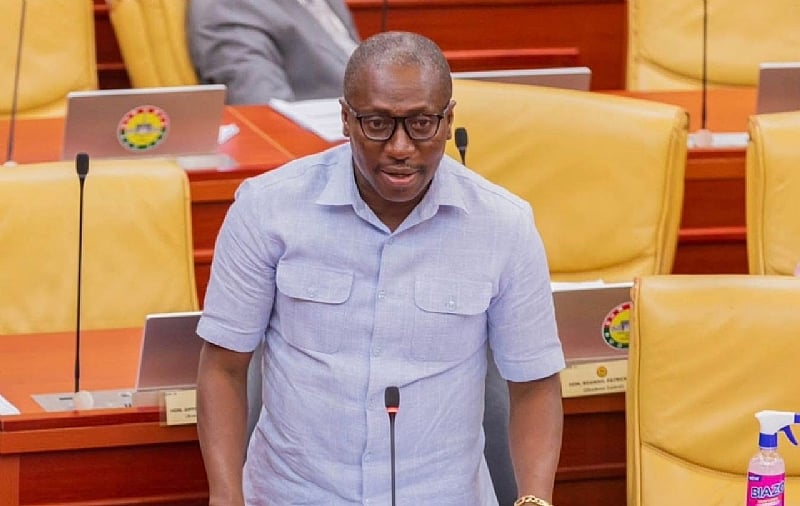The Electricity Company of Ghana (ECG), a critical component of Ghana’s power sector, is facing significant challenges that threaten its long-term sustainability, primarily due to inefficiencies in revenue collection. Alexander Afenyo-Markin, Minority Leader in Parliament and MP for Effutu, has highlighted the urgency of structural reforms within the ECG, emphasizing that these issues transcend partisan politics and require immediate attention for the benefit of the nation. He draws upon his prior experience as Board Chairman of ECG, citing a report indicating that a mere 30% of power consumers, encompassing both residential and industrial users, actually pay for their electricity consumption. This stark reality underscores the depth of the problem, with a significant portion of consumers either lacking proper metering infrastructure or engaging in illegal connections to bypass payment. Afenyo-Markin stresses that this pervasive non-payment constitutes a “real crisis” that must be addressed promptly.
The core issue, as identified by Afenyo-Markin, lies in the fundamental structure and operations of the ECG. He argues that without addressing these fundamental flaws, the cycle of financial instability within the power sector will continue to plague future governments, regardless of their political affiliation. This underscores the need for a non-partisan, long-term approach to resolving these systemic challenges. Afenyo-Markin’s call to action emphasizes the need for immediate intervention to prevent the perpetuation of these problems and ensure the long-term viability of the ECG and, by extension, the entire power sector. The continuous deferral of these necessary reforms only exacerbates the issue, making it more complex and costly to address in the future. The current situation, if left unaddressed, will likely lead to a recurring cycle of financial instability, potentially jeopardizing the reliable supply of electricity to consumers and hindering the nation’s economic development.
A key element in Afenyo-Markin’s argument is the Loss Reduction Programme (LRP) introduced by the Akufo-Addo administration. He advocates for the continued pursuit of this program as a crucial step towards addressing the systemic inefficiencies plaguing the ECG. The LRP, designed to minimize technical and non-technical losses within the electricity distribution network, holds significant potential for improving revenue collection and ensuring the financial stability of the ECG. By minimizing electricity theft and improving the accuracy of metering systems, the LRP aims to create a more equitable and sustainable power sector. Afenyo-Markin’s endorsement of the LRP highlights its importance as a vital component of the broader reform agenda needed to address the deep-seated challenges facing the ECG.
The context of Afenyo-Markin’s advocacy for ECG reform gained prominence following a social media video in which he called for unity and a depoliticized approach to address Ghana’s energy sector challenges. This video, however, was misinterpreted by some as an endorsement of the controversial GHS1 levy on each litre of fuel, often referred to as the “dumsor levy.” Afenyo-Markin has categorically refuted this interpretation, clarifying that his statement was taken out of context and does not represent his position on the fuel levy. The misrepresentation of his statement underscores the often-polarized nature of public discourse surrounding energy policy and the importance of accurate and balanced information in shaping public understanding.
Afenyo-Markin’s clarification regarding his stance on the fuel levy highlights the importance of distinguishing between the broader issue of ECG reform and specific policy proposals. While advocating for structural reforms within the ECG, he has clearly distanced himself from endorsing the fuel levy, demonstrating a nuanced approach to addressing the complex challenges facing the energy sector. This distinction emphasizes the need for careful consideration of individual policy proposals and their potential impact, separate from the broader consensus on the need for structural reforms within the ECG. His position underscores the complex interplay of various factors within the energy sector and the need for comprehensive and well-informed solutions.
In essence, Afenyo-Markin’s advocacy for ECG reform is a call for urgent action to address the systemic inefficiencies that threaten the stability of Ghana’s power sector. He emphasizes the need for a non-partisan, long-term approach to resolving these challenges, highlighting the importance of initiatives like the Loss Reduction Programme. His clarification regarding the fuel levy underscores the need for careful and nuanced consideration of individual policy proposals within the broader context of power sector reform. His experience as former Board Chairman of ECG provides him with valuable insights into the inner workings of the organization, lending weight to his calls for urgent and comprehensive reform. The future of Ghana’s energy sector hinges on the effective implementation of these reforms, ensuring a sustainable and reliable supply of electricity for the benefit of all citizens.














